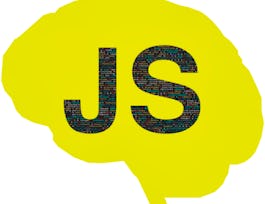Want to take the first steps to become a Web Developer? This course will help you discover the languages, frameworks, and tools that you will need to create interactive and engaging websites right from the beginning.



Introduction to HTML, CSS, & JavaScript
This course is part of multiple programs.


Instructors: Michelle Saltoun
Sponsored by Louisiana Workforce Commission
41,728 already enrolled
(356 reviews)
Recommended experience
What you'll learn
Describe the Web Application Development Ecosystem and terminology like front-end developer, back-end, server-side, and full stack.
Identify the developer tools and integrated development environments (IDEs) used by web developers.
Create and structure basic web pages using HTML and style them with CSS.
Develop dynamic web pages with interactive features using JavaScript.
Skills you'll gain
Details to know

Add to your LinkedIn profile
6 assignments
See how employees at top companies are mastering in-demand skills

Build your subject-matter expertise
- Learn new concepts from industry experts
- Gain a foundational understanding of a subject or tool
- Develop job-relevant skills with hands-on projects
- Earn a shareable career certificate from IBM


Earn a career certificate
Add this credential to your LinkedIn profile, resume, or CV
Share it on social media and in your performance review

There are 4 modules in this course
The most fundamental tools for front-end developers are the languages they use for developing the website or app. Foremost among these languages is HyperText Markup Language (HTML). A thorough understanding of HTML, its features, support, and scripting capabilities makes a solid foundation for you to build your development skills on.
What's included
7 videos2 readings2 assignments1 app item5 plugins
HTML5 has many elements that enable developers to create well-structured and varied websites. CSS is a style sheet language that defines how HTML elements are displayed. By using a combination of HTML5 and CSS, developers can create rich, interactive applications. The HTML5 elements provide ways to separate a HTML document into divisions, create headers and footers, define sections, create headings, and define the body of the document. In addition, there are many HTML5 elements that allow the user to interact with the website, inputting information in various formats like dates, times, numbers, email addresses and much more. The data is sent to the browser by using HTML, and the design is applied to that data by using CSS. To be able to create the structure and style you want for your site, you must be familiar with both languages.
What's included
5 videos1 reading2 assignments3 app items6 plugins
You now have a website or Cloud App with structure and content from HTML, consistent style from CSS, and a limited amount of interactivity for the user. To enhance the user experience and create a real wow factor, you’re going to need JavaScript. With JavaScript, you can make your webpages dynamic by using features like interactive forms, picture slideshows, and sophisticated menu systems.
What's included
8 videos1 reading2 assignments2 app items5 plugins
Now that you have been equipped with the skills to use HTML, CSS, and JavaScript, you will have the opportunity to practice and create a web application. In this scenario, you have been hired by a reputed placement company, ABC Consultant, whose primary focus is to help people with less than 5 years of experience to find a suitable placement in their industry. As a web developer, they have assigned you the task of creating a portfolio for one of their clients as a single static webpage to share with the prospective employers.
What's included
2 readings1 peer review2 app items3 plugins
Offered by
Why people choose Coursera for their career




Learner reviews
356 reviews
- 5 stars
70.83%
- 4 stars
17.77%
- 3 stars
3.61%
- 2 stars
4.72%
- 1 star
3.05%
Showing 3 of 356
Reviewed on Dec 23, 2024
It was a great course, had a great experience in labs as well as in lectures
Reviewed on Nov 1, 2024
A very good foundational course to begin with html css and javascript
Reviewed on Jun 16, 2024
Good material, but the JavaScript section is a little outdated. With ES6 let and const are now preferred over var.
Recommended if you're interested in Computer Science

University of Glasgow

University of Minnesota

Scrimba

Open new doors with Coursera Plus
Unlimited access to 10,000+ world-class courses, hands-on projects, and job-ready certificate programs - all included in your subscription
Advance your career with an online degree
Earn a degree from world-class universities - 100% online
Join over 3,400 global companies that choose Coursera for Business
Upskill your employees to excel in the digital economy



